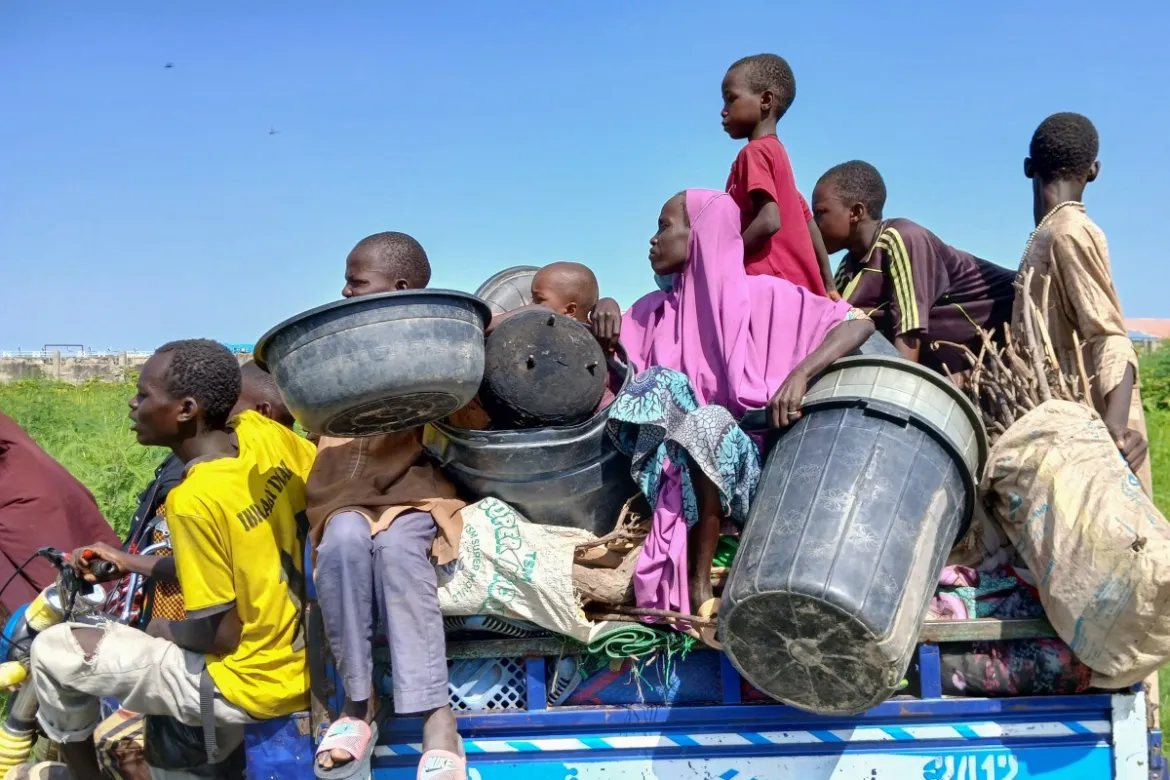
• IRC warns of acute malnutrition
• FG deploys experts to mitigate recurrence
• NAFDAC evacuates damaged drugs from markets
Save the Children International (SCI) has raised concerns that over 150,000 children were displaced as a result of the floods in Borno and are taking shelter in 26 Internally Displaced Persons (IDP) camps in the state.
This led to the International Rescue Committee (IRC) warning, yesterday, that escalating malnutrition crisis in North East was unfolding due to the flood that has exacerbated unprecedented humanitarian needs.
The Federal Government deployed a team of experts to address the adverse effects of the disaster and avoid recurrence.
National Agency for Food and Drug Administration and Control (NAFDAC), on its part, has commenced the evacuation of damaged drugs and regulated products from Borno markets following floods that ravaged Maiduguri Metropolitan Council and Jere Local Council.
SCI Country Director (CD), Duncan Harvey, who disclosed this yesterday during a briefing in Abuja, after his visit to Borno, disclosed that over one million people across Borno had been affected by the flash floods, with 400,000 displaced, and 300,000 found shelter in 26 displacement camps.
He said, “We can estimate that 150,000 of those people living in those camps are children, and that is a real cause for concern and then we continue to protect those children in terms of health and nutrition, make sure they have access to safe drinking water and appropriate care in place.”
Harvey lamented the conditions of the Bakassi camp, one of the largest camps in the state, noting that its condition was particularly harsh for children.
According to the CD, SCI has about 200 staff working with the state government, United Nations and international non-governmental organisations (NGOs) to respond as effectively as possible.
IRC said mass screenings in displacement camps in Maiduguri revealed high levels of malnutrition cases, with the camp’s population growing from 30,000 to nearly 60,000 in recent weeks.
The Country Director, Babatunde Ojei, said: “In Maiduguri, where the IRC operates three nutrition centres, one was cut off by the flood. To help, the IRC has worked with the government to find extra space at another health centre to take in children from the affected areas.”
Twenty-six children were evacuated from the flooded facility.
“In addition to the anticipated increase in people facing hunger, a rising number of suspected or likely cholera cases have been reported in Gubio Camp. Malnourished children are at extreme risk if they contract cholera due to existing vulnerabilities such as diarrhoea and malaria. We advocate the vaccination of all children admitted into nutrition centres as a priority.”
The committee said the impact of the flood in tyhe North East recently not only displaced thousands of families but is expected to worsen the already critical crisis of Severe Acute Malnutrition (SAM) in children due to the destruction of food stocks, disruption of agricultural activities and displacement of families.
MINISTER of Environment, Balarabe Lawal, in Abuja, yesterday: “We mourn this tragic event. It is imperative that we focus on the urgent need for a coordinated and comprehensive response to mitigate the resultant environmental challenges posed by the flood.
“The ministry will send a team of experts from the relevant department, agencies and projects to collaborate with the Borno government in addressing the impact of the flood.”
The deployment, he explained, comprises Department of Pollution Control and Environmental Health; Department of Erosion, Flood and Coastal Zone Management; Department of Forestry; Nigeria Climate Adaptation-Erosion and Watershed Project (NCAEWP-EIB); National Park Services; Environmental Health Council (EHCON) and Agro-Climatic Resilience in Semi-Arid Landscape (ACReSAL) Project.
According to the minister, the teams will carry out continuous water sampling and tests, identify sources of hazardous chemicals and take proactive measures to prevent waterborne diseases.
He noted that 100 drums of 40kg chlorine had been deployed to Borno to disinfect water sources, ensuring safe drinking water and preventing waterborne diseases like cholera.
THE floods, which affected over 815,000 persons and submerged many drug stores, prompted NAFDAC’s Director-General, Prof Mojisola Adeyeye, to order the immediate removal of substandard and falsified medicines from Maiduguri markets.
At a briefing in Maiduguri, NAFDAC’s North East Zonal Director, Kenneth Azikiwe, said the agency was focusing on sections of the market and areas where regulated products were produced, especially those submerged by floodwaters.
Azikiwe stated, “Our priority is to correct any issue that may have arisen from consuming contaminated products. NAFDAC’s guidelines ensure the safe disposal of compromised products, safeguarding the health and well-being of Maiduguri residents.”



![[FILES] A picture shows the Argentinian flag. (Photo by DANIEL LEAL-OLIVAS / AFP)](https://cdn.guardian.ng/wp-content/uploads/2020/11/Argentina-.jpg)


